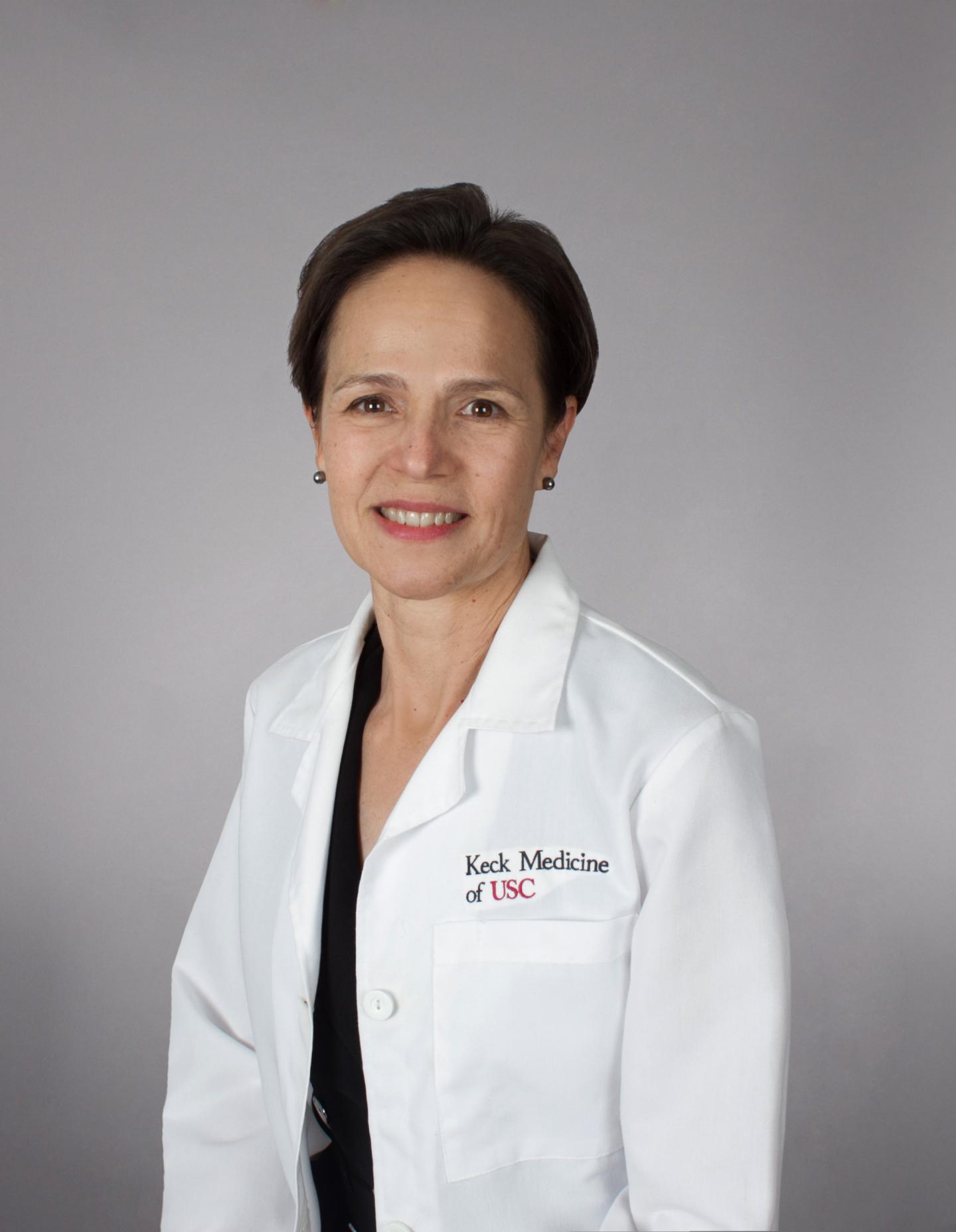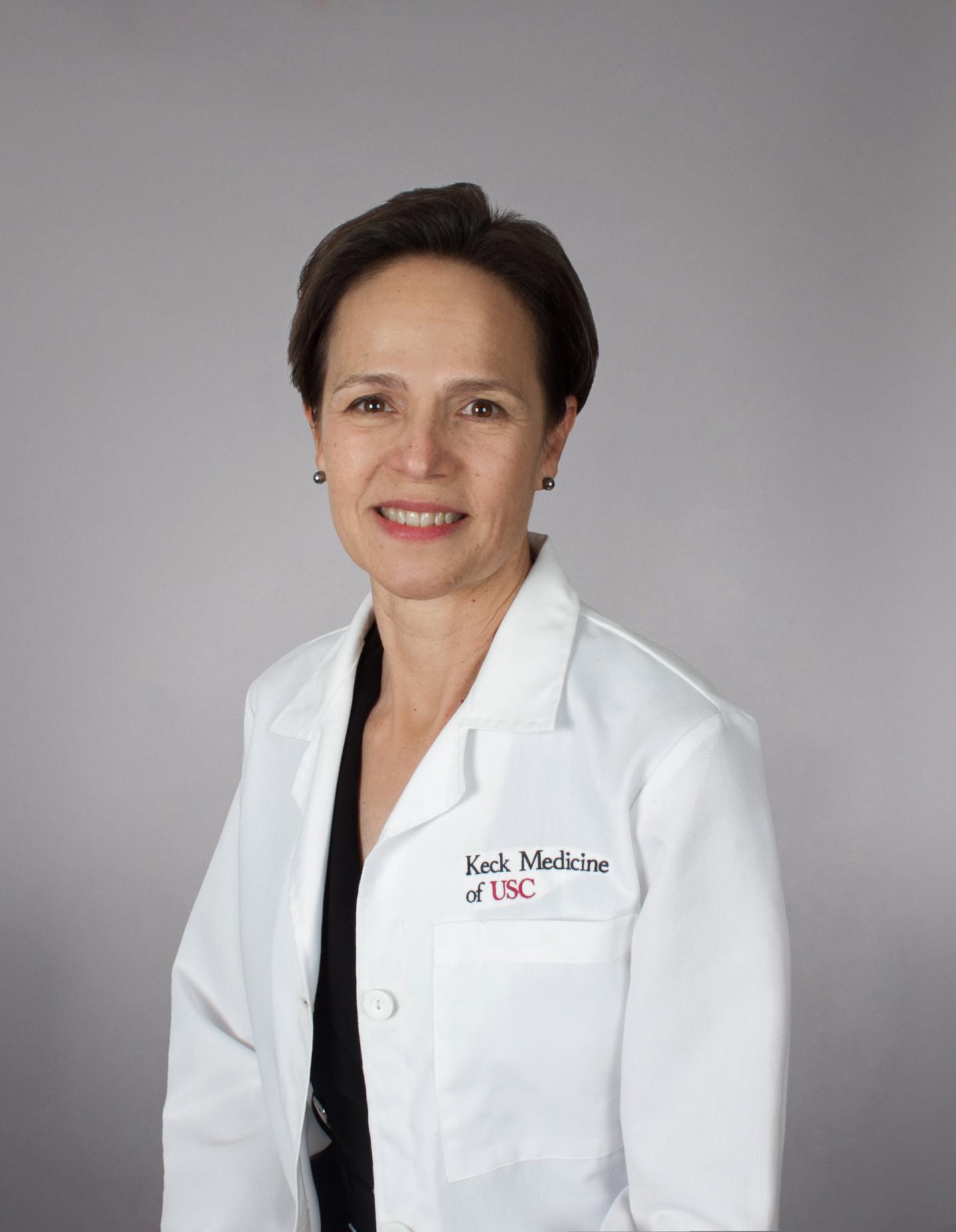
Credit: Ricardo Carrasco III/Keck Medicine of USC
LOS ANGELES – Considered a safe and highly effective contraception method, intrauterine devices (IUDs) may also be quietly offering protection against the third-most common cancer in women worldwide. A new study from the Keck School of Medicine of USC has found that IUD use is associated with a dramatic decrease in the incidence of cervical cancer.
The systematic review, published in Obstetrics & Gynecology on Nov. 7, is the first to combine data from multiple studies on IUDs and cervical cancer. The analysis included data from 16 high-quality observational studies involving more than 12,000 women worldwide. Results showed that in women who used an IUD, the incidence of cervical cancer was a third lower.
"The pattern we found was stunning. It was not subtle at all," says the study's lead author, Victoria Cortessis, PhD, associate professor of clinical preventive medicine at the Keck School. "The possibility that a woman could experience some help with cancer control at the same time she is making contraception decisions could potentially be very, very impactful."
Averting a looming global health crisis
The number of women diagnosed with cervical cancer is steadily rising. According to the World Health Organization (WHO), approximately 528,000 women were diagnosed with cervical cancer worldwide in 2012, and 266,000 women died from the disease. By 2035, the WHO projects that those numbers will climb to more than 756,000 and 416,000, respectively.
For women in developing countries, where cervical cancer prevention resources such as the human papillomavirus (HPV) vaccine or regular cervical screenings are scarce, and where populations are increasing rapidly, a contraceptive that offers protection against cervical cancer could have a profound effect, Cortessis explains.
"A staggering number of women in the developing world are on the verge of entering the age range where the risk for cervical cancer is the highest — the 30s to the 60s. Even if the rate of cervical cancer remains steady, the actual number of women with cervical cancer is poised to explode," Cortessis says. "IUDs could be a tool to combat this impending epidemic."
Should gynecologists begin recommending IUDs for protection against cervical cancer?
Not quite yet, but it could be on the horizon. Understanding the mechanism of action behind the protective effect of IUDs is the next logical step, Cortessis says. Some scientists speculate that the placement of an IUD stimulates an immune response in the cervix, giving the body an opportunity to fight an existing HPV infection that could one day lead to cervical cancer. Another possibility is that when an IUD is removed, some cervical cells that contain HPV infection or precancerous changes may be scraped off.
"If we can demonstrate that the body mounts an immune response to having an IUD placed, for example, then we could begin investigating whether an IUD can clear a persistent HPV infection in a clinical trial," explains gynecologic oncologist and study coauthor Laila Muderspach, MD, chair of obstetrics and gynecology at the Keck School. "The results of our study are very exciting. There is tremendous potential."
###
About the Keck School of Medicine of USC
Founded in 1885, the Keck School of Medicine of USC is among the nation's leaders in innovative patient care, scientific discovery, education and community service. It is part of Keck Medicine of USC, the University of Southern California's medical enterprise, one of only two university-owned academic medical centers in the Los Angeles area. This includes Keck Medical Center of USC, composed of Keck Hospital of USC and USC Norris Cancer Hospital. The two world-class, USC-owned hospitals are staffed by more than 500 physicians who are faculty at the Keck School. The school has approximately 1,650 full-time faculty members and voluntary faculty of more than 2,400 physicians. These faculty direct the education of approximately 800 medical students and 1,000 students pursuing graduate and postgraduate degrees. The school trains more than 900 resident physicians in more than 50 specialty or subspecialty programs and is the largest educator of physicians practicing in Southern California. Together, the school's faculty and residents serve more than 1.5 million patients each year at Keck Hospital of USC and USC Norris Cancer Hospital, as well as USC-affiliated hospitals, Children's Hospital Los Angeles and Los Angeles County + USC Medical Center. Keck School faculty also conduct research and teach at several research centers and institutes, including the Eli and Edythe Broad Center for Stem Cell Research and Regenerative Medicine at USC, USC Cardiovascular Thoracic Institute, USC Institute of Urology, USC Mark and Mary Stevens Neuroimaging and Informatics Institute, USC Norris Comprehensive Cancer Center, USC Roski Eye Institute and Zilkha Neurogenetic Institute.
In 2017, U.S. News & World Report ranked the Keck School among the top 35 medical schools in the country.
For more information, go to keck.usc.edu.
Media Contact
Mary Dacuma
[email protected]
323-865-7839
@keckmedusc





